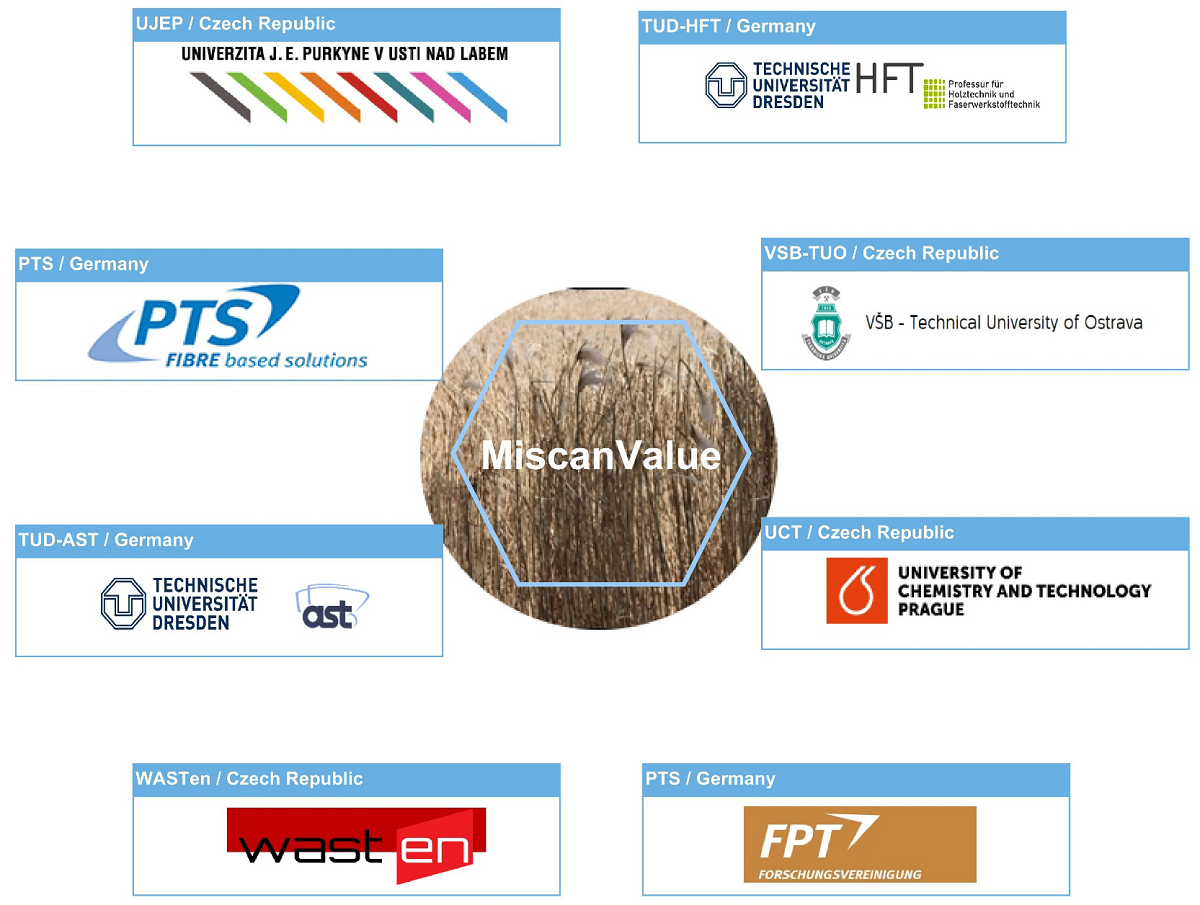MiscanValue
Creating value chains for utilization of miscanthus fibres from sustainably managed marginal and postmining areas.
Project information
Starting date:
Initially – May 1, 2020
Postponing for July 1, 2020 because of Corona virus lockdown
End-date:
Initially – June 30, 2022
Currently – December 31, 2022
The project was extended for an additional six months because of delating in dissemination/implementation activities caused by the epidemiologic situation.
In the Czech Republic, the project is coordinated by WASTen.
Summary
The diversification of the feedstock deposit in the paper and fibrous material industries and the increasing sharing of non-wooden materials is within the demand of EU Bioeconomy Strategy encouraging the production of renewable biological resources and processing to vital products and bio-energy. The replacement of cost increasing virgin and recycled fibre pulp qualities by natural alternatives is urgent as well. From that perspective using of miscanthus, a popular perennial non-food crop, looks promising. Robustness and physiological characteristics like a deep, dense, and extensive root system, allow the plant to adapt to various soils and environmental conditions. High yields with prominent content of lignocellulose, low requirement for nutrients input, and low susceptibility to pests and diseases make miscanthus an excellent feedstock for producing fibre based materials. Besides, having common environmental problems in Saxony and Czech Republic due to contaminated postmining and post-military soils, the utilization of miscanthus at that areas will bring additional positive outcomes, including improvement of the soil quality, avoidance of the soil and water erosion and reduction emission of greenhouse gases. The main goal of the proposed project is to ensure a complete miscanthus value chain from sustainable land management at different marginal lands through cultivation, harvest, storage, to biomass processing to fibres, pulp, fibrous materials and packaging paper. Simultaneously, miscanthus waste produced during processing and from contaminated plant tissues from the field will be utilized by pyrolysis to alternative energy and biochar used at the fields again. Different requirements such as yield increase, continuous supply of raw material, ensuring safe products, proper processing to fibrous materials and paper and effective converting of by-products need to be fulfilled to accomplish this goal. The developed value chain will be relevant to the circular economy and imply a “zero waste” approach. Overall, the proposed project will contribute to the EU Bioeconomy Strategy and strengthen transboundary cooperation between Saxony province and Czech Republic.
